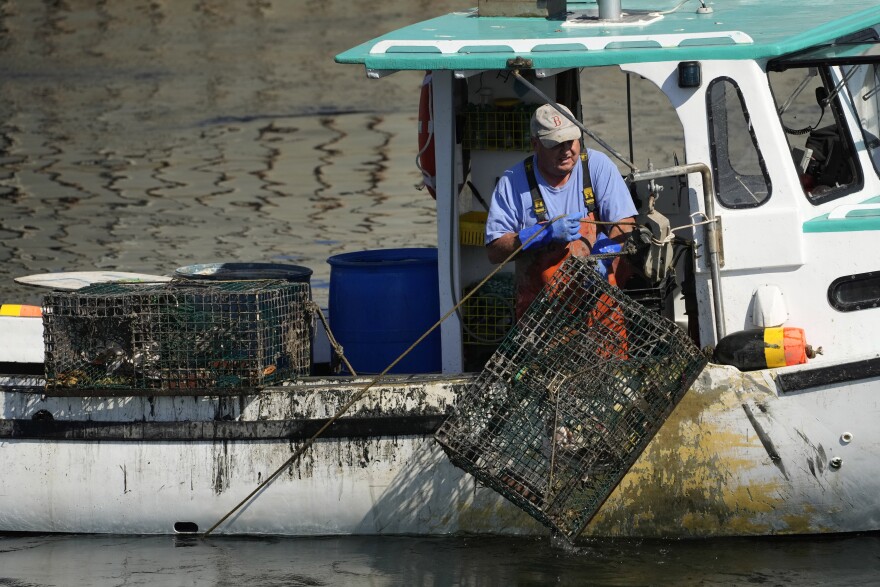Lobster fishermen are watching closely as regulators continue to refine an area in the Gulf of Maine that could be used for offshore wind development, and they're looking for more reassurances that the federal government will avoid popular fishing grounds.
The federal Bureau of Ocean Energy Management has identified a 3.5 million acre draft area off the coasts of Maine, New Hampshire and Massachusetts that could be used for commercial offshore wind development.
That proposed area excludes most of Lobster Management Area (LMA) 1, a popular offshore fishing area in Maine.
But Zach Jylkka of the Bureau of Ocean Energy Management said some fishing grounds near or part of LMA 1 are still being studied and may be up for consideration, because they would be less expensive to develop.
"We have to take into account the cost of these projects, and the farther offshore projects go, generally the higher the cost is," he said late last week during a virtual meeting with fixed gear fishermen. "So if all the secondary areas are removed, Maine does have a goal of 3 gigawatts of offshore wind by 2050, and that's going to have to come from areas that are significantly offshore."
Maine's congressional delegation and Gov. Janet Mills have also urged federal regulators to avoid granting offshore wind development in that area.
Some lobstermen worried that offshore wind development could box them out of certain fishing zones and create more competition in the grounds that remain open.
Wayne Delano fishes in one of the areas that federal regulators are still studying for potential development.
"If I can't fish there, I have to go somewhere," he said. "I can't go west, that's a different zone. I'd have to go east. Basically you're going to force us into fighting to make a living."
Lobster fishermen also expressed concerns about siting wind energy projects in habitats important to critically endangered North Atlantic right whales, particularly in areas that are already subject to seasonal fishing closures.
Federal regulators say they plan to finalize wind energy areas sometime in early 2024. Any potential offshore wind development is likely a few years away.




